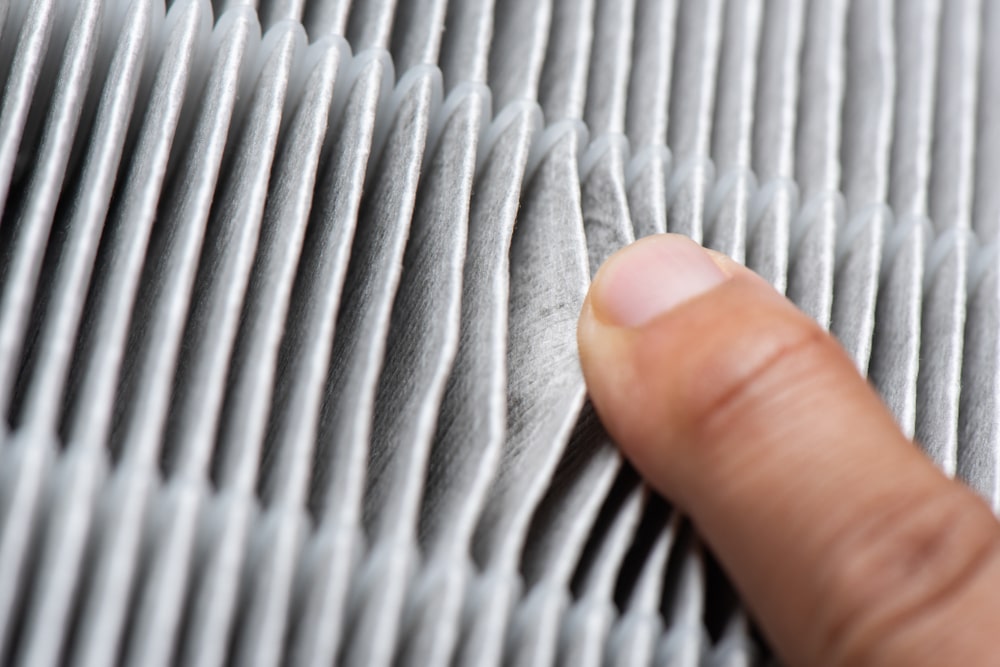When it comes to air filters, understanding the differences between MERV (Minimum Efficiency Reporting Value) and HEPA (High-Efficiency Particulate Air) filters is essential for making an informed choice. Both types of filters have their unique characteristics, applications, and efficiencies. Here’s a detailed comparison:
MERV FILTERS
What is MERV?
- MERV Rating System: The MERV rating system ranges from 1 to 16 and measures a filter’s ability to capture particles of varying sizes, from 0.3 to 10 microns.
- Common Applications: Used in HVAC systems in residential, commercial, and industrial settings.
How MERV Filters Work
- Filter Material: Made from pleated fabric or other materials designed to capture particles.
- Efficiency: The higher the MERV rating, the more efficient the filter is at capturing smaller particles.
- MERV 1-4: Basic filtration, captures large particles like dust and pollen.
- MERV 5-8: Intermediate filtration, captures smaller particles like mold spores.
- MERV 9-12: Higher efficiency, captures fine particles like lead dust and vehicle emissions.
- MERV 13-16: Highest efficiency for MERV filters, captures very fine particles like bacteria, mold, and smoke.
Advantages of MERV Filters
- Versatility: Suitable for a wide range of applications.
- Scalability: Available in various efficiencies to match specific needs and budgets.
- Affordability: Generally more affordable than HEPA filters.
Limitations of MERV Filters
- Efficiency Cap: Even the highest MERV ratings (13-16) do not match HEPA’s efficiency.
- Airflow Resistance: Higher MERV ratings can increase resistance to airflow, which may affect HVAC system performance if not properly sized.
HEPA FILTERS
What is HEPA?
- HEPA Standard: HEPA filters must capture at least 99.97% of particles as small as 0.3 microns.
- Common Applications: Used in environments requiring very high air purity, such as hospitals, clean rooms, and high-end consumer products like air purifiers and vacuum cleaners.
How HEPA Filters Work
- Filter Material: Composed of a dense mat of fibers arranged to trap particles through diffusion, interception, and impaction.
- Efficiency: Exceptionally high at capturing very fine particles, including pollen, mold spores, dust mites, bacteria, and some viruses.
Advantages of HEPA Filters
- High Efficiency: Provides superior air filtration, removing the majority of airborne contaminants.
- Health Benefits: Ideal for people with allergies, asthma, or other respiratory conditions due to its ability to capture very small particles.
- Reliability: Proven effectiveness in critical applications.
Limitations of HEPA Filters
- Cost: More expensive than most MERV filters.
- Airflow Resistance: Can significantly impede airflow if the HVAC system is not designed to handle the increased resistance.
- Maintenance: Requires regular maintenance and replacement to maintain efficiency.
Comparison Summary
| Feature | MERV Filters | HEPA Filters |
| Efficiency Range | MERV 1-16 (varies by particle size) | 99.97% efficiency for particles ≥0.3 microns |
| Applications | Residential, commercial, industrial HVAC | Hospitals, clean rooms, air purifiers |
| Cost | Generally more affordable | More expensive |
| Airflow Resistance | Varies by MERV rating (higher ratings more resistant) | High resistance, requires compatible systems |
| Maintenance | Regular replacement needed, less frequent | Regular replacement needed, more frequent |
| Health Benefits | Good for general air quality improvement | Excellent for allergy and asthma sufferers |
Conclusion
Choosing between MERV and HEPA filters depends on your specific needs:
- For General Use: MERV filters are versatile, cost-effective, and come in a range of efficiencies suitable for most residential and commercial HVAC systems.
- For High Air Quality Needs: HEPA filters are the best choice for environments requiring the highest level of air purification, such as healthcare settings and homes with individuals with severe allergies or respiratory conditions.
Understanding these differences helps ensure you select the right filter to meet your air quality needs and maintain a healthy environment.

